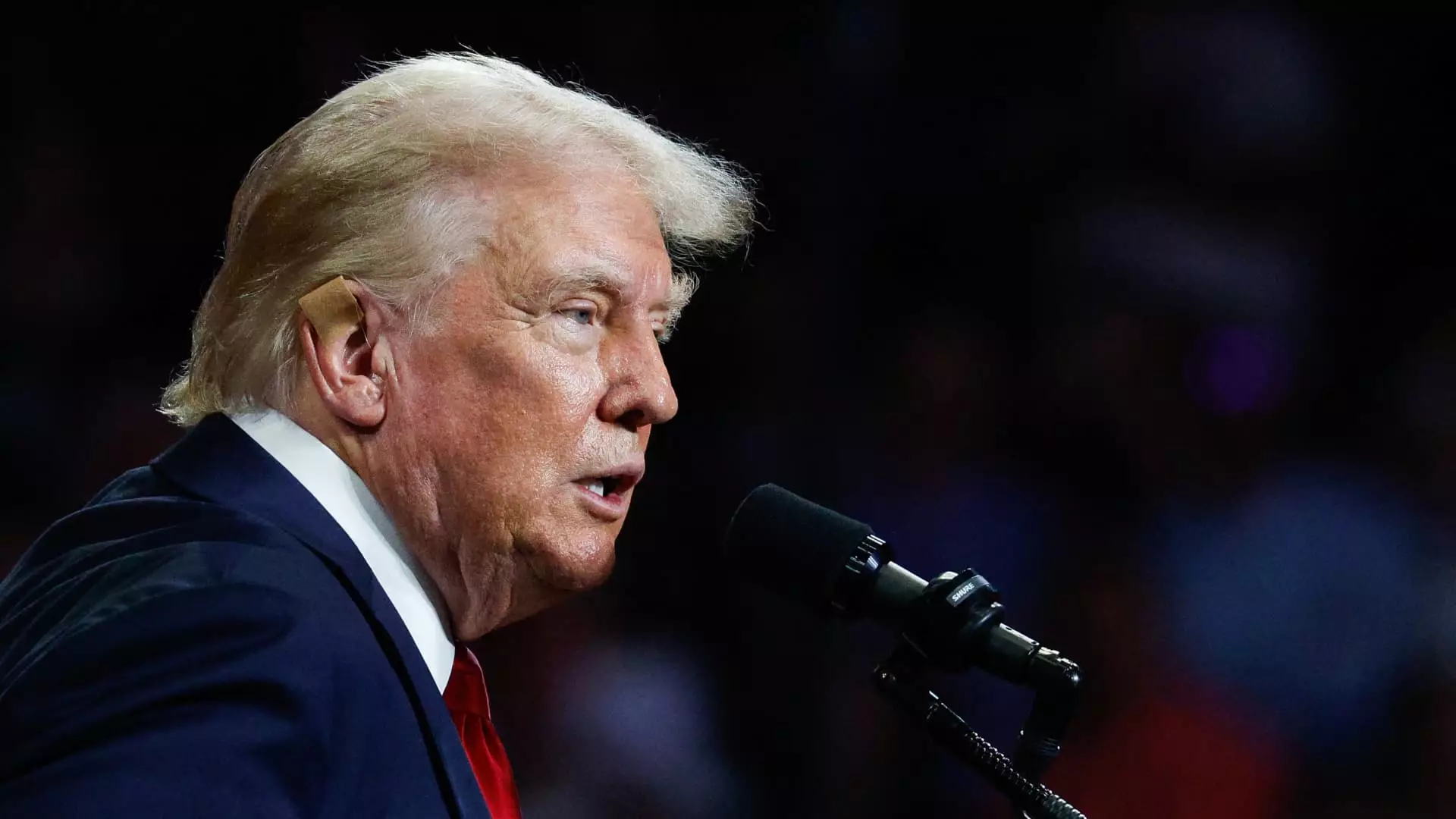Former President Donald Trump made headlines at a recent Bitcoin Conference in Nashville by hinting at the establishment of an official U.S. bitcoin strategic reserve. Despite stopping short of a concrete promise to create such a reserve, Trump pledged to maintain the current level of bitcoin holdings that the U.S. government has amassed from seizing assets from financial criminals. This proposal marks a significant departure from the current practice of auctioning off seized cryptocurrencies.
Trump’s strategy of holding onto U.S. government bitcoin holdings aligns with the principles of many crypto enthusiasts, emphasizing the importance of long-term investment in bitcoin. However, his stance falls short of the more ambitious pitch made by third-party presidential candidate Robert F. Kennedy Jr., who proposed establishing a 4 million bitcoin strategic reserve to rival the country’s gold reserves. Kennedy’s plan involved daily purchases of bitcoin, which would drastically impact the regulation and valuation of the cryptocurrency.
Legislative Challenges and Financial Implications
Despite the enthusiasm for establishing a U.S. bitcoin strategic reserve, the practical implementation of such a plan presents significant challenges. An executive order from the president would not be sufficient to bring a bitcoin reserve into existence, as new legislation and congressional approval would likely be required. Senator Lummis of Wyoming announced her intention to introduce legislation supporting a strategic bitcoin reserve, funded by existing Treasury Department funds. The potential use of taxpayer money for additional bitcoin purchases raises questions about the financial implications of creating and maintaining a bitcoin reserve.
The establishment of a U.S. bitcoin strategic reserve would have far-reaching implications for the digital currency’s legitimacy and value. While the move could bolster bitcoin’s status as a recognized asset class, it would also have significant price implications in the short term. A national bitcoin reserve could potentially lead to a surge in bitcoin prices, as other countries may follow suit in creating their strategic reserves. The impact of such a reserve on the overall cryptocurrency market remains speculative, with experts predicting both positive and negative outcomes.
Trump’s proposal to maintain and potentially expand the U.S. government’s bitcoin holdings represents a significant shift in the country’s approach to cryptocurrency. While the idea of a bitcoin strategic reserve holds promise for bolstering economic stability and reducing the federal deficit, the practical challenges and financial considerations involved cannot be overlooked. As the debate around a U.S. bitcoin strategic reserve continues to unfold, it remains to be seen whether such a plan will come to fruition and how it will shape the future of the cryptocurrency market.



Leave a Reply